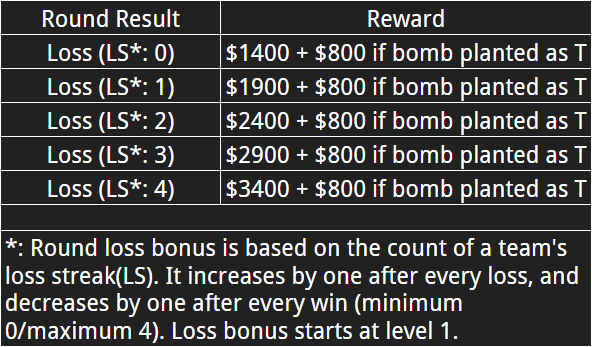Benz Drops Insights
Stay updated with the latest news and trends in the automotive industry.
Wallet-Wise Warfare: Navigating Force Buy Rounds in CSGO
Master the art of Force Buy rounds in CSGO and turn your wallet into a weapon! Unlock strategies that could reshape your gameplay today!
Mastering Force Buy Strategies: Tips for Success in CSGO
In the dynamic world of CSGO, mastering Force Buy strategies is essential for gaining an edge over your opponents. Force buying refers to the tactic of purchasing weapons and equipment in situations where your team's economy is low, allowing you to maintain pressure on your adversaries. To successfully execute a force buy, communicate effectively with your teammates about your financial situation and agree on a cohesive purchasing strategy. This includes prioritizing key roles such as AWP players or entry fraggers, ensuring that the team has a balanced approach to its loadout. Additionally, leverage knowledge of map control and tactics to optimize your chances of winning rounds on a tight budget.
Another critical aspect of implementing effective Force Buy strategies is understanding the psychology of your opponents. Use the element of surprise to your advantage; when your team goes for a force buy, your enemies may underestimate your firepower and positioning. Coordinate your attacks to maximize effectiveness—consider executing quick rushes onto bomb sites or ambushing areas where you anticipate enemy movement. Remember, a well-timed force buy can lead to not only round wins but also disrupt the enemy's economy, giving your team a strategic advantage moving forward. Keep analyzing your performance to continually refine your tactics and ensure that you’re always a step ahead.

Counter-Strike is a series of tactical first-person shooter games where players compete in teams to complete objectives. An essential aspect of gameplay includes communication among team members, and players often look for ways to enhance their experience, such as the cs2 voice enable command to improve voice communication. The series has evolved significantly since its inception, with each iteration bringing new features and gameplay mechanics.
Understanding the Economics of Force Buys: When and Why to Use Them
Understanding the economics of force buys is crucial for both players and teams in competitive gaming environments. A force buy occurs when a team decides to spend all available resources to purchase weapons and utility, even if it compromises their overall long-term strategy. This tactic is often employed after losing a round, where the team's economy is significantly impacted. The primary goal is to upset the opponents' momentum and potentially secure a few crucial rounds. However, deciding when to go for a force buy requires an analysis of the team's current situation, the opponents' economy, and the chances of securing a victory in the ensuing round.
There are several conditions where a force buy is considered a viable strategy. Firstly, when the opposing team is on the verge of an economic advantage, a force buy can disrupt their rhythm by potentially taking them off their game plan. Secondly, if the team is confident in their ability to make plays with limited resources, utilizing a force buy can lead to a surprising turnaround. Lastly, communication is key; teams must agree on the strategy and execute it effectively to maximize their chances of success. In summary, understanding the economics behind force buys not only enhances a team's tactical approach but can also significantly impact the overall outcome of a match.
How to Counter Force Buys: Strategies for Winning Against Economically Challenged Teams
In competitive gaming, facing economically challenged teams can present unique challenges, primarily due to their ability to execute **force buys** effectively. To counter this strategy, it is essential to establish strong communication and teamwork. Implementing a structured economic management strategy can create a significant advantage. For example, clearly define roles and responsibilities during rounds, emphasizing the importance of staying disciplined with weapon purchases and not succumbing to pressure from opponents.
Moreover, understanding the psychology behind **force buys** can offer additional leverage. When the opposing team is low on resources, adopting a calculated aggression approach can disrupt their strategy and capitalize on their economic disadvantage. Techniques such as coordinating utility usage and ensuring proper positioning can help secure early picks, thus demoralizing the opponent. Ultimately, preparation and adaptability are key to overcoming teams that rely heavily on force purchases.